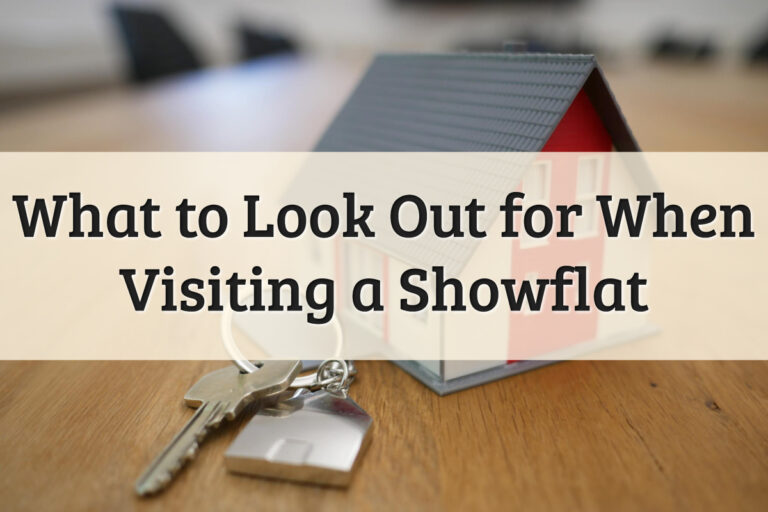Renting Out Property in Singapore
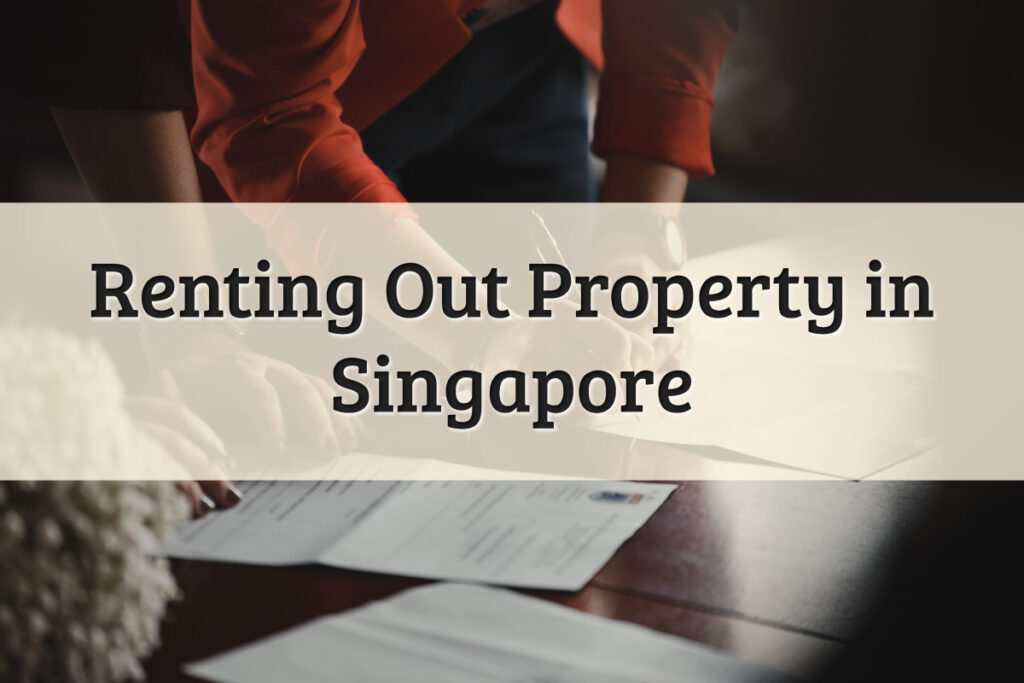
Most Singaporeans believe that renting out their private property or HDB flat can help them make some passive income that is both sustainable and substantial. Well, sure, being a landlord IS an easy way to yield a passive income-that is if you’re aware of the rules and regulations to follow.
However, the rental market in Singapore is becoming more competitive than ever, and a landlord can’t be too fussy. Vacancies could cost property investors or homeowners a few thousand dollars of missed rental income every month.
And if you’re paying for your mortgage, it’s even more critical to keep your condo tenanted. So how do you quickly rent out a condo unit in Singapore, then? Check out this guide for the basics of renting out your HDB flat or private condo unit (especially new condos).

Check Your Eligibility
The following are some of the requirements and eligibility conditions when renting out a new property in Singapore :
Renting Out HDB Flats
- The owner must be a Singapore Citizen.
- Singapore Permanent Residents are only authorized to rent out rooms but NOT the entire flat.
- You have fulfilled the MOP or Minimum Occupation Period of five years.
- The MOP is 3 years if the flat is bought from the open market without a housing grant before 2010 August 30.
- Singapore Citizens who have NOT accomplished the MOP are only authorized to rent out rooms.
- If renting out the entire flat, you must apply for approval from HDB.
- A landlord is allowed to rent out bedrooms without the prior approval of HDB only if the flat is 3-room or larger.
- You must inform HDB within seven days of the date of the lease.
- You must notify HDB for renewals, tenancy terminations, and any changes to the tenant’s particulars within seven days of commencement.
Renting Out Private Property
- When renting out private property Singapore, approval is NOT needed anymore.
- Short term rental of fewer than six months on a daily, weekly, or monthly basis is not permitted.
- Internal partitioning to build more rooms is NOT allowed.
- Individual room and whole unit rental is only permitted for long term stays of more than six months.
- Each tenant should have a space of at least 10 sqm.
- Regardless of unit size, the maximum number of allowed tenants is eight. However, it may vary depending on the flat type.
- All authorized occupiers and owners are included in the headcount.
- The household shelter, living room, and utility room cannot be rented out.
- Tourists are not authorized to rent out HDB flats.

Who Can You Rent Out to?
- Must be a Singapore Citizen
- Must be a Singapore Permanent Resident
- For Non-Citizens:
- Employment Pass
- S Pass
- Work Permit
- Student Pass
- Dependant Pass
- Long-Term Social Visit Pass
- From the date of the rental application, passes must have a validity period of at least six months.
- Work Permit holders from marine, construction, and process sectors must be Malaysians.
- Landlords are obligated to double-check the immigration status of their foreign occupants.
Steps to Take if Renting Out Property
Here’s a step by step guide on how to rent out a property for first-time landlords.
Check Your Eligibility
Although owners are free to rent out their condo or private property (in part or in whole) without any government approval, you are still subject to specific stipulations.
First, you must not rent out your unit for less than three months at a time. Next, you are also required to adhere to the occupancy cap rule, which states that the maximum number of unrelated tenants that may be accommodated in a condo is 6. This applies to all individuals living in your home, as long as they are not part of the same family unit.
Calculate Costs
Prior to figuring out how much you want to rent your condo out for, take a few moments of your time to calculate the costs essential to renting out your property.

House Mover Fees
The most affordable movers in Singapore charge between SGD 350 to SGD 550 per 14-foot truck.
HDB Application Fee
When submitting your application for HDB’s approval, you’ll have to pay a flat fee of SGD 20.
Agent Commission
If you’re new to renting out a condo in Singapore, your best option is to hire a property agent. Real estate agents don’t just assist you with putting up listings, they also help you out from getting your condo to get more exposure, screen potential tenants, negotiate prices to taking care of the paperwork. Agents can also mediate any disputes between you and the occupant.
Generally, once your occupant signed a one-year lease, you’ll pay half a month’s worth of rent to your agent. If it’s a two-year lease, then you’ll need to pay double that amount of agent fees to your property agent.
Tenant’s Requests
A potential tenant might ask for requests prior to renting your condo. You can refuse, of course, but this will just mean that your home will be left unoccupied for longer. Assuming the condo is fairly new and there aren’t too many apparent signs of damages, you might expect to spend SGD 200 to SGD 500 on updating your fixtures or furniture as per your occupant’s requests.
Maintenance Fees
This bit depends on whether you’re renting out the whole unit or a single room. The room-rental tenancy agreement generally places the expense of repairs and maintenance under landlords. But in the case of renting out a whole apartment, the usual practice is that any maintenance work under SGD 200 to SGD 300 is the responsibility of the tenant. Old properties, of course, will cost more to maintain. Then again, the recurring expense for maintenance can cost SGD 300 to SGD 200 per year.
Insurance
The property itself is the most high-priced asset and well worth protecting. Expect a recurring expense for this bit from SGD 31 to SGD 209 per year.
Income Tax
Unfortunately, 20 per cent of your rental income goes to IRAS. So depending on your rental income, your recurring expense may cost up to SGD 7,200 per year.
Property Tax
Do note that the amount of property tax you’ll need to pay may increase when renting out your property. To check how much property tax you’re liable to pay, you can use IRAS’s calculator. But the recurring expense may reach up to SGD 2,920 a year.
Once you have calculated these expenses, you will have a clearer idea of how much you need to ask for your condo.
Set Your Pricing
If you’re not sure how to price your home, you’re not alone. Most landlords just look at what their neighbours are inquiring about for their properties and use this as a benchmark. The more mathematical way of doing this is to first figure out the rental yield you want to earn, then determine how much rental income you have to generate to reach this yield.
For those who aren’t familiar with the term “rental yield”, this is basically the landlord’s rental income as a percentage of the property’s value. While it is typically calculated as a gross figure, it is recommended to use the net figure as it is more accurate and detailed.
Here’s the formula:
Net rental yield = Gross yearly rental / Purchase price of property + Additional expenses
The additional expenses include the expenses affiliated with being a landlord and other costs such as your condo’s property taxes and maintenance fees.

List Your Property
Once you’ve already done working out all the numbers, you can now list your property. If you have a property agent, he/she will do this for you. Agents have the experience of understanding the kind of occupant who is most likely to e attracted to your place. But if not, you will have to market your home yourself.
The number of viewings you obtain will depend on how attractive your listing is, so be sure to get it right. Here are some tips to keep in mind:
- Take pictures that look good for your potential tenants. Make sure to let natural light in as possible. This way, your condo will look airy and bright.
- Also include pictures of the condo amenities
- Clean up the place before snapping any pictures.
- Making your listing as informative and with many details as possible can help attract prospective tenants.
Hold Viewings
Once your listing is up, the next step is to hold viewings[1]. Here are some of the tips to keep in mind when conducting viewings:
- Inform the security and the guards ahead of time that you will be hosting a guest to start off on a good note.
- Consider waiting for your prospective tenant at the condo entrance so that they will get lost.
- Choose the time of the day when it is not too hot (either morning or evening).
- Schedule ahead when conducting multiple viewings in a single day.
- Make sure you’re well-dressed.
- Tidy your home up prior to the tenants’ arrival. Make sure it looks decent.
- Don’t just show the unit–take them for a tour of the entire condo including the amenities.
- Provide your tenant as many details as possible, paint them a picture of how residing in your condo would look like.
Once you have held a fair number of viewings, your offers will soon begin to stream in. From here, what’s left are the administrative tasks from drafting the Tenancy Agreement (TA), collecting a security deposit to proceeding with the handover.

Benefits of Renting Out Property
Income
With tenants, a landlord will receive a good deal of money every month that is bound to cover a fair portion of either any other expenses for the month or any outstanding mortgage on their property.
Tax Benefits
Every sum of rental income you earn is subject to income tax. Good thing, the Inland Revenue Authority of Singapore (IRAS) also offers the ease of pre-filled rental costs to owners who rent out their properties. In other words, in the process of generating rental income, some costs incurred ay be claimed as a tax deduction.
These costs include housing loan interest, expenses to secure tenant (stamp duties, agent fees, etc), certain maintenance and repair costs, property tax, fire insurance premiums, and replacement costs for existing furniture and fittings.
Property Appreciation
The passive returns from renting out would put you off from selling off the apartment and rather wait out longer term. A majority of housing in Singapore do grow in appreciation gains as the years go by. While subject to outliers, this case is generally win-win monetary wise. After all, sell too early and you might be ill-fated to pay a heavy Seller Stamp Duty fine.
Gains in Equity
By definition, equity is the ownership of properties that may have debts or other liabilities affixed to them. If the owner is still paying the mortgage for the apartment they just rented out, the equity is considered low.
As the month’s pass, however, they can use their monthly earnings to pay mortgage payments, effectively establishing equity (owning more of the condo) without having to pay the mortgage themselves–particularly if they are receiving a good rental yield.
Downsides to Renting Out Property
Income Tax
A homeowner is subject to tax breaks, unfortunately, there is no running away from income tax. Be ready to be taxed on the net amount left in your rental income, besides excluding any allowable expenses for tax deductions.
Legal Risks and Issues
Renting out your condo never comes without any risks and issues. Some potential risks include a tenant vandalising the unit or an occupant getting injured on your property. To try and alleviate the consequences of these issues, you have to keep yourself to cognizant of current property legislation and laws that could help you ‘fight the case’ when the unexpected occurs.
Extra Costs
Even with tax deductions, there are a few rental expenses that cannot be claimed. These include:
- Additional costs for extra decorations and furniture
- Renovations to the apartment
- Home insurance
- Expenses of securing your first tenant i.e. advertising, agent fees, and legal expenses.
Other Risks
- Tenant-Time Management: Some of the endless time-consuming cases include screening prospective tenants, showing the tenants around the property, and even meeting with occupants for administrative matters.
- Vacancies: Vacancies may turn out to be a financial burden for a landlord especially when you’re still paying for the apartment’s mortgage and other related expenses. On top of that, the longer the condo is unoccupied, the more stressful it gets for you, specifically if it is one of several similarly tiered condos in the same development–which would laboriously deplete your chances out the unit.

Conclusion
At the end of the day, having a flow of much-need passive income is always a gratifying possibility, specifically when you can claim certain tax benefits. That being said ( and as you probably know by now), being a landlord is not always the easiest tasks to do. Therefore, being aware of what to expect upfront definitely moves your forwards in more ways than one.
Property Listings
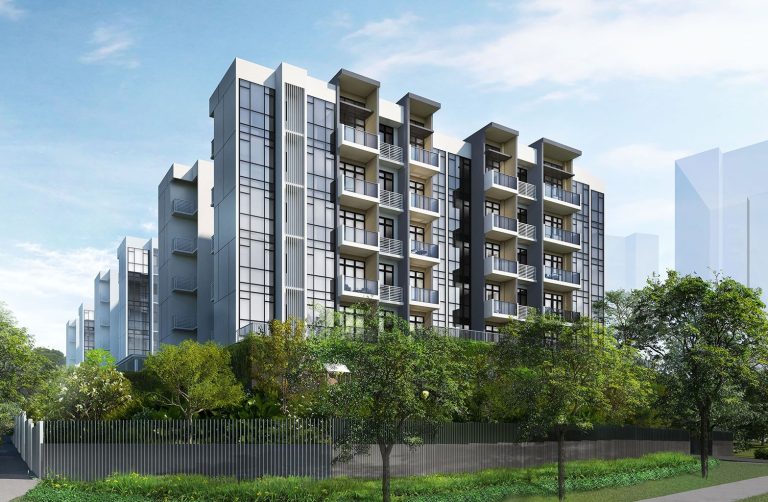
Our Thoughts On The Arden: Your Buyer’s Guide
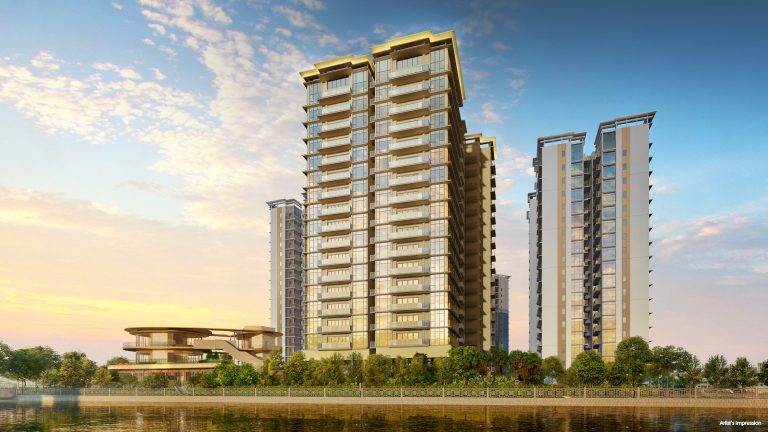
Our Thoughts On Dunman Grand Residences: Your Buyer’s Guide

Our Thoughts On Pinetree Hill: Your Buyer’s Guide
Blog Post
Emerald of Katong: Your Ultimate Guide to Upscale Living in Singapore’s Vibrant Heart
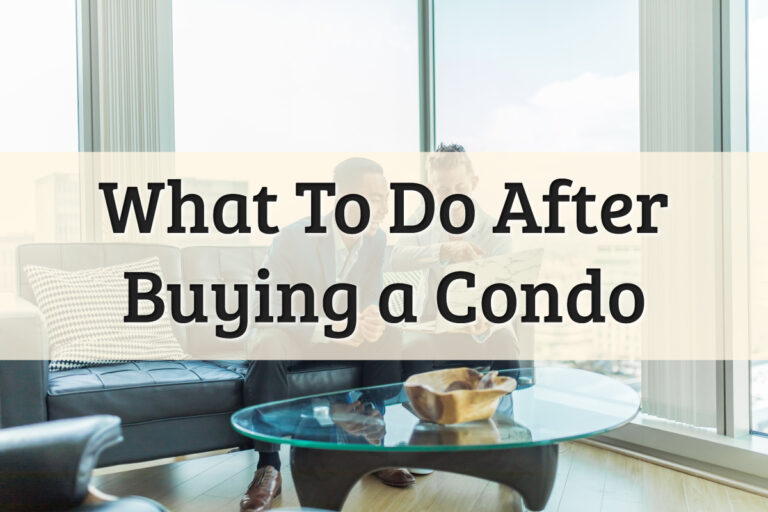
What To Do After Buying a Condo
